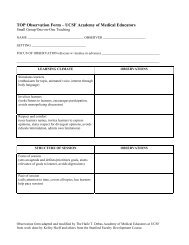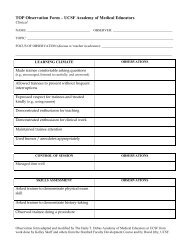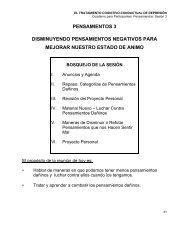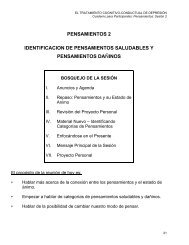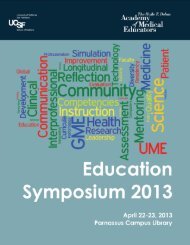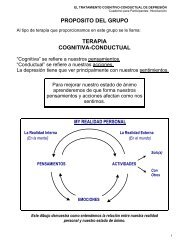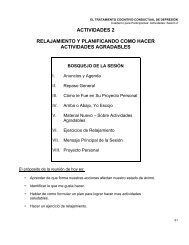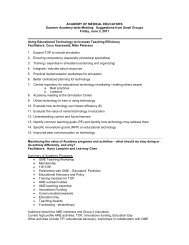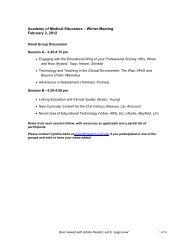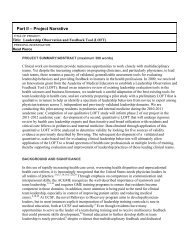The Healthy Management of Reality - Stanford University
The Healthy Management of Reality - Stanford University
The Healthy Management of Reality - Stanford University
Create successful ePaper yourself
Turn your PDF publications into a flip-book with our unique Google optimized e-Paper software.
limits that rely on one's presence ("If you touch that, I'll punish you") are lesslikely to be <strong>of</strong> long term use that those that rely on natural consequences ("If youtouch that, you will get burned"). Similarly, rules that rely on their positivecharacteristics will have a double positive effect than those that rely on negativecharacteristics. For example, "It would be really thoughtful <strong>of</strong> you to share yourcandy with your cousins," as opposed to so "Don't be greedy, share your candy."<strong>The</strong> former provides not only a rule about candy or sharing, but also ageneral description <strong>of</strong> a desirable trait (thoughtfulness) that will shape the child'sself image for a long time to come. <strong>The</strong> latter is a blunt command dependent onyour authority, and adds a negative trait (being greedy) that could lead to feelings<strong>of</strong> guilt or reduced self-esteem in the future. Moreover, the nature <strong>of</strong> theinteractions and the feelings elicited in the child toward the parent are also quitedifferent. <strong>The</strong> first is a suggestion and implies kindly feelings toward both thechild and the cousins. <strong>The</strong> feelings elicited in the child toward the parent are likelyto be that the parent is giving advice to help the child be good, but that if the childdoes not comply, the parent will still be positively disposed toward him. <strong>The</strong> latterfeels coercive, and could be interpreted as pitting the child against the cousins.<strong>The</strong> feelings elicited toward the parent are that the parent is a disciplinarian. Toignore the parent's injunction, the child must disobey. If the child does disobey,the unintended lesson is learning to minimize the importance <strong>of</strong> the parent'sdispleasure. Such a lesson could cause a lot <strong>of</strong> grief in future years.HMOR.July2005.Muñoz.doc 55



